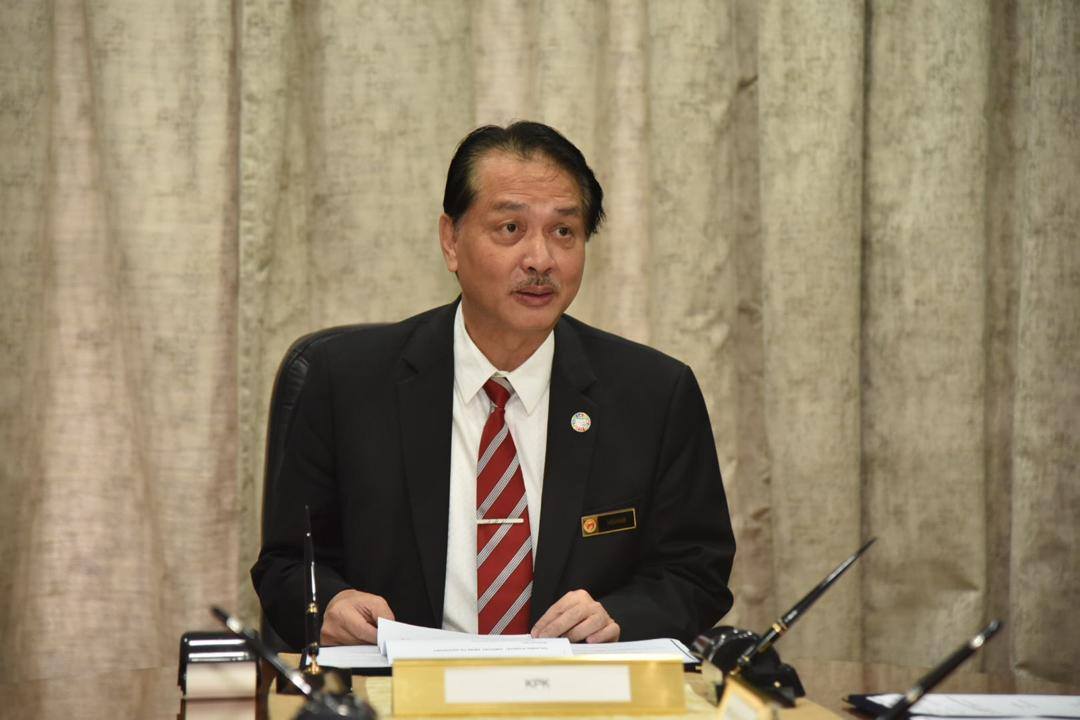KUALA LUMPUR, April 24 — Health authorities today declared that Malaysia has managed to slow the coronavirus spread, preventing the public health care system from getting overwhelmed, after five weeks of partial lockdown.
Health director-general Dr Noor Hisham Abdullah said the highest number of new Covid-19 cases was reported on April 3 at 217 infections, and that the Ministry of Health (MOH) had expected a peak on April 14 with a projection of 6,300 total cases by then.
The government imposed a nationwide Movement Control Order (MCO) on March 18 and has since extended it three times to May 12.
“We realise now we’re on the recovery phase, not peak phase,” Dr Noor Hisham told a press conference.
“Nonetheless, it’s not impossible to have an exponential surge if we let our guard down. It’s important for us to make sure we continue to follow what we’ve done in MCO 1, 2 and currently, 3. Definitely we’re seeing signs of success of MCO 1, 2 and 3.
“We managed to flatten the curve and control the cases.”
MOH reported 88 new Covid-19 cases today, marking the eighth consecutive day of daily increases in double-digits.
Thirteen of the new infections are imported cases, while 62 are from areas under Enhanced Movement Control Order.(EMCO), comprising 39 from Selangor Mansion in Masjid India here; 15 from Kampung Sg Lui, Hulu Langat; and eight from the Kuala Lumpur wholesale market in Selayang.
This means that only 13 of today’s cases are local transmissions in the community, a decline from 30 yesterday.
There are a total of 5,691 coronavirus cases in the country as of today, including 1,932 active infectious cases who are all kept in hospital, regardless of whether they need treatment or not.
Dr Noor Hisham also claimed that the coronavirus R0 (pronounced R-naught) in Malaysia has been reduced from 3.55 before the MCO was imposed on March 18, to below 1 by April 14.
The R0 measures how contagious an infectious disease is by looking at the average number of people a sick person will infect. An R0 of 3.55 means that each new person spreads the highly contagious disease to about 3.55 people. An R0 of below 1 means the disease is declining and could die out. The World Health Organization (WHO) estimates the R0 of Covid-19 at between 2 and 2.5.
“That shows infectivity in the community is less than 1 now,” said Dr Noor Hisham.
“Cases have been reduced to two digits. We hope in another week or two, we’ll be able to reduce it further. That’s our intention and hopefully by doing so, we can control Covid infection in our hospital and community.”
He also said Malaysia has done some of the six conditions by MOH, according to WHO guidelines, in lifting the MCO.
MOH is looking at controlling Covid-19 transmission in the community by warding everyone who tests positive for the virus, besides testing all residents in areas under the EMCO, a total lockdown.
Border control, said the Health DG, must be tightened to prevent imported cases.
Malaysia has also achieved sufficient capacity in the public health care system to detect early Covid-19 cases, test, isolate, and quarantine people with Covid-19, besides using contact tracing to identify potential cases. The current usage of hospital beds, Dr Noor Hisham pointed out, is less than 30 per cent.
The use of intensive care unit (ICU) beds and ventilators has also declined. Only 41 Covid-19 patients are treated in ICU as of today, including 18 on ventilator support.
MOH has also taken preventive steps to protect vulnerable populations, like senior citizens, people with underlying health conditions, and people with disabilities.
Dr Noor Hisham added that everyone must also take preventive steps like washing their hands frequently and practicing social distancing, including in the workplace. These new habits must be practiced for more than six months or even a year, while a vaccine for Covid-19 has yet to be developed.
Communities, he said, must also be empowered to control Covid-19 transmission in their areas. Health authorities have identified various zones that should be isolated, like green zones that do not report new Covid-19 infections for two weeks.








